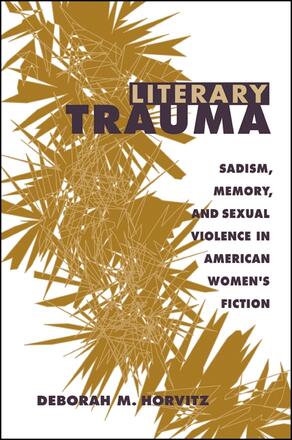
Literary Trauma
Sadism, Memory, and Sexual Violence in American Women's Fiction
Alternative formats available from:
Examines representations of political, psychological, and sexual violence in seven novels by American women.
Description
This book examines portrayals of political and psychological trauma, particularly sexual trauma, in the work of seven American women writers. Concentrating on novels by Charlotte Perkins Gilman, Pauline Hopkins, Gayl Jones, Leslie Marmon Silko, Dorothy Allison, Joyce Carol Oates, and Margaret Atwood, Horvitz investigates whether memories of violent and oppressive trauma can be preserved, even transformed into art, without reproducing that violence. The book encompasses a wide range of personal and political traumas, including domestic abuse, incest, rape, imprisonment, and slavery, and argues that an analysis of sadomasochistic violence is our best protection against cyclical, intergenerational violence, a particularly timely and important subject as we think about how to stop "hate" crimes and other forms of political and psychic oppression.
Deborah Horvitz teaches at Salem State College and at the School at the Museum of Fine Arts in Boston.
Reviews
"I like the almost seamless blending of literary discussion with psychological information, as well as the author's use of methodologies from the areas of women's studies, cultural studies, African-American literary and folk studies, multiculturalism, and psychoanalysis. The book is significant to the entire field of women's studies and is also a marker for the gaps in our accepted academic discourses. It is, in a large sense, cultural history. By paralleling turn-of-the-century works with very contemporary ones, Horvitz creates a meaningful century of discussion. " — Linda Wagner-Martin, author of Favored Strangers: Gertrude Stein and Her Family
"Horvitz uses recent trauma theory as she analyzes the representation of sexual trauma and heterosexual sadomasochism in selected works by a diverse group of women authors. This book provides a thoughtful and eminently readable contribution to the study of psychoanalysis and literature, trauma literature, feminist studies, and women's fiction. " — J. Brooks Bouson, author of Quiet As It's Kept: Shame, Trauma, and Race in the Novels of Toni Morrison